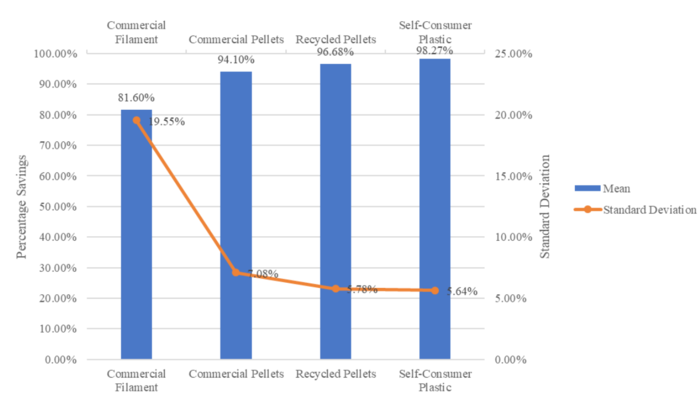
It is now well established that a nation's university-educated highly qualified personnel (HQP) population has a clear positive benefit on economic development by improving labor force efficiency and productivity. Yet HQP mobility is often restricted, particularly for economically-poor undocumented HQP. In order to overcome the challenges of mobility for both traditional and undocumented HQP, this study evaluates how the use of open source (OS) development and documentation can overcome barriers to HQP mobility to benefit society. Case studies are provided for software and hardware. Then mechanisms of incentives for OS development to benefit the global commons are evaluated against the case studies. The results show that even modest contributions to open source development can result in substantial value and high societal ROIs, which are more than enough to justify funding HQP mobility by all three mechanisms. The ROIs for popular free software can range into the millions of percent, while for free and open source hardware the ROI is still high, but more modest (>10-1,000%) and more closely tied to the market value of the product. The mechanisms introduced in this study could serve as tools to reward OS contributions by HQP and grant them greater freedom of movement.
See also[edit | edit source]
- Economic Impact of DIY Home Manufacturing of Consumer Products with Low-cost 3D Printing from Free and Open Source Designs
- Emergence of Home Manufacturing in the Developed World: Return on Investment for Open-Source 3-D Printers
- Life-cycle economic analysis of distributed manufacturing with open-source 3-D printers
- Impact of DIY Home Manufacturing with 3D Printing on the Toy and Game Market
- Quantifying the Value of Open Source Hardware Development
- Open-source, self-replicating 3-D printer factory for small-business manufacturing
- Global value chains from a 3D printing perspective
- Economic Potential for Distributed Manufacturing of Adaptive Aids for Arthritis Patients in the U.S.
- Low-cost open source ultrasound-sensing based navigational support for visually impaired
- Towards national policy for open source hardware research: The case of Finland
- Open-Source Medical Hardware for Pandemics
- Economic Savings for Scientific Free and Open Source Technology: A Review
- Emerging Business Models for Open Source Hardware
- Strategic Investment in Open Hardware for National Security
- Professors Want to Share: Preliminary Survey Results on Establishing Open Source Endowed Professorships
- Canadian professors’ views on establishing open source endowed professorships
- Business Models for Open Source Hardware Repositories





